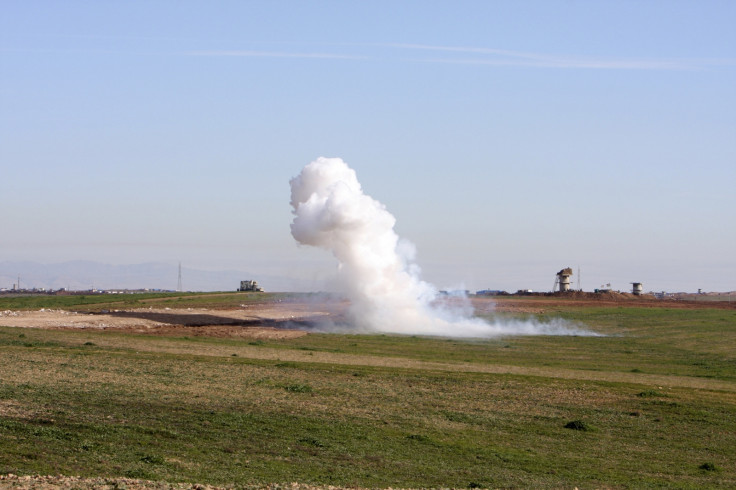Isis escalates use of chemical weapons against Kurds in Syria and Iraq

Islamic Sate (Isis) has used chemical weapons against Kurdish forces and civilians in Syria and Iraq, a joint investigation by two independent research groups found.
Teams from the UK based Conflict Armament Research (CAR) and Sahan Research found that in the space of weeks IS militants twice used chemical weapons against Kurdish forces in Hasakah governorate, northern Syria, and fired a 120 mm mortar containing chemical agents at Kurdish positions near Mosul in Iraq which failed to explode, reports CNN.
CAR describes this as "the first documented use by (ISIS) forces of projectile-delivered chemical agents against Kurdish forces and civilian targets."
When the team approached the projectile near Mosul after it had been lying unexploded for only a week they found a dark, yellow liquid leaking from the device.
"The investigation team also experienced headaches and nausea when in close proximity to the projectile/agent," said James Bevan, executive director of CAR, symptoms consistent with exposure to the chlorine chemical agent.
The teams also analysed the munitions fired against the YPG in Hasakah, and found that IS forces "fired a whole range of projectiles at a Kurdish YPG unit outpost" on 28 June, causing "loss of focus; loss of consciousness in some cases; pain from the waist down, resulting in temporary, localized paralysis".
Nine days later, researchers examined remains of exploded munitions at Tal Brak, another Syrian YPG position, and were covered in chemical residue which had a powerful odour and caused throat and eye irritations. At a hospital in nearby Qamishli, tests showed that fighters affected tested positive for PH3, a phosphine based chemical used for fumigation or as an insecticide.
On the same day, a rocket struck a home in hasakah, and emitted a dark olive green liquid with a powerful odour that caused throat and eye irritations. The rocket was fired from a nearby village at that time under IS control.
Malik Ellahi, spokesman for the Organization for the Prohibition of Chemical Weapons, told CNN that the organisation had not yet examined the report, but said that the use of chemical weapons was banned under the Chemical Weapons conventions.
The report said that chemicals such as phosphine would be widely available in farming regions of northern Syria, and IS had experimented with different means of weaponising chemicals.
"We consider this very much a test run, using improvised munitions and filling them with chemicals that are available to them," wrote the authors.
Emmanuel Deisser, managing director at Sahan Research, said: "Although these chemical attacks appear to be test cases, we expect IS construction skills to advance rapidly as they have for other IEDS (improvised explosive devices)."
There have been numerous reports of the use of chemical weapons by IS, with the Iraqi military in March saying that soldiers had been targeted with roadside bombs containing chlorine chemical agents, and a UN report released the same month alleging the use of chemical weapons as one of a series of war crimes committed by Is.
© Copyright IBTimes 2025. All rights reserved.






















